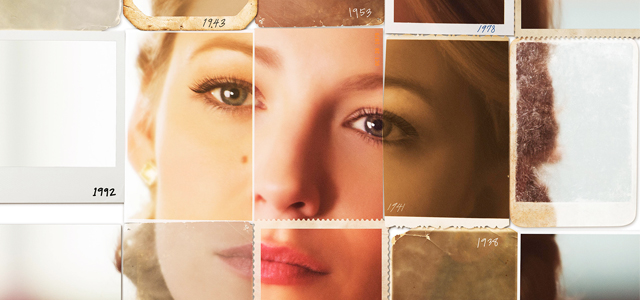
The Age of Adaline

(M) Starring: Blake Lively, Harrison Ford, Ellen Burstyn
“No wise man ever wished to be younger.” Jonathan Swift
What would you do if you were to remain 29 years of age for the rest of your life?
Some might think that this would be ideal, while others would consider it a horrifying experience. This is the life of Adaline Bowman (Blake Lively). Through a series of fantastic phenomena, she has remained as a 29-year-old for eight decades. She has to experience a life of solitude and separation, because she cannot age with those that she is closest to. Her life is veiled in secrecy, until she meets Ellis Jones (Michiel Huisman), a philanthropist who ignites her passion for life and unknowingly he is a link to her past. What seems to be an innocent weekend away, becomes a crossroads for the truth and a chance for her to decide what she will do with the rest of her life.
I will admit it, a good romance is a joy to experience. Romances may not be my favourite genre, but they have their place in cinema. The Age of Adaline will not win awards for groundbreaking film-making, but it does fill a void in this year’s celluloid offerings. It is a good, straightforward, romantic journey. Even with the fantasy element of eternal youth, this is a good film for the romantic at heart. It can get a bit sappy, but it is a satisfying tale.
Indie director Lee Toland Krieger’s measured style develops a believability within this inventive story. Krieger harkens back to the beautiful romances of bygone eras, which made such fine use of subtlety and magnificent cinematography.
With the same level of measured performance Lively is excellent as the lead. She portrays the melancholy of a woman who lives with the mind of an elderly woman trapped in a perpetually young body. She allows herself to fall for Ellis, who is an old soul in a young man’s body. Huisman brings a depth of character that makes this relationship right for both of them.
One of the challenges of decade-jumping films is the ageing of key characters, but Krieger manages to make this element convincing as well. From the excellent supporting performances by Harrison Ford and Ellen Burstyn to the young actors that portrayed them in earlier decades, these characters are convincing.
The Age of Adaline is a romance and contains some of the inevitable trappings of the genre. But due to the melancholy of the lead character, this tale contains the bittersweetness needed to move beyond the syrupy elements of many good-hearted romances.
Notably, this romantic adventure provides some of the best discussion points in recent cinema. In our era of desired eternal youth or the desire to merely appear young, The Age of Adaline allows the audience to see the curse that this gift can be on anyone’s life. It helps that Lively is an attractive woman and manages to not experience any disfiguring accidents in Adaline’s 107 years.
Thoughts move from eternal youth to eternal life. Her melancholic spirit is shown in her awareness of this life that she remains trapped in. There has to be more as death occurs all around her, but she seems to be eternally trapped by youth. She maintains a mental strength to not seek death as the answer to her pain, but death does add to the shadow that envelops her life. If that is not enough, Adaline has to lie and say farewell to all who come into her life. Her life is a moral conundrum and explains why she seems to be a shell of a woman throughout much of the film, until she is eventually allowed to tell the truth and live the life she never thought she could live.
The Age of Adaline proves to be more than a romance. It is a philosophical journey packaged as this year’s classy romance.
Is it ironic that a film of ageless beauty would be packaged in the film-making style of yesteryear? Still, it will meet modern audiences with a fresh view on romance and societies search for eternal youth. This is a film that can bring out the romantic in anyone, is satisfying and may make the date-night dinner conversation deeper and more meaningful.
What are the bigger questions to consider from this film?
- Would you want to be forever young? (Ecclesiastes 12:1, 2 Timothy 2:22)
- Is an eternal soul better off being in heaven than on earth? (John 14:2, Philippians 3:20)
Russell Matthews works for City Bible Forum Sydney and is a film blogger




























































